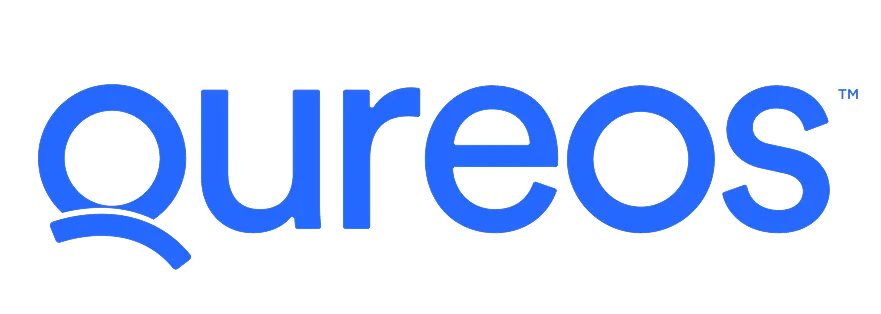Saudi Arabia has seen immense growth and transformation over the past few years. Driven by the Saudi Vision 2030 plan, the country is diversifying its economy beyond oil, boosting employment opportunities, and building a thriving private sector. This economic shift has spurred massive development in infrastructure, tourism, logistics, technology, and other vital industries, reshaping the Saudi job market.
This evolving landscape presents exciting opportunities and unique challenges for job seekers. As you scan job boards and polish your resume, you must recognize that some of your preconceived notions about the Saudi job market may not hold. The nuances of the Kingdom's job market call for a unique approach to successful job hunting. Understanding and adapting to these realities can significantly enhance your job search strategy.
This article will explore seven common misconceptions about job hunting in Saudi Arabia, offering insights to guide your career growth in the Kingdom.
Also Read: How to Find Jobs in Saudi Arabia
{{sa-link="/sandbox/home-v3"}}
Misconception #1: There Are No Jobs Available
A common perspective is that the job market is dry, with no openings to apply for. However, in reality, Saudi Arabia has a growing economy. The Kingdom continues working towards the goals of Saudi Vision 2030, sparking job creation across industries.
Sectors like tourism, infrastructure, and logistics are rapidly expanding. Meanwhile, healthcare, education, retail, and technology need qualified talent to meet demand. So, while competition has increased, ample jobs exist for skilled applicants.
Platforms like Iris use AI-powered technology to match candidates to open roles directly. Their AI simplifies the job search, connecting qualified professionals with hiring companies.
Misconception #2: Connections and Referrals Are Necessary
Another assumption is that you must have an “in” or referral to get hired. With so many applicants per role, it seems impossible to stand out without knowing the right people.
In reality, many companies in Saudi Arabia now use competency-based hiring. This practice focuses on skills rather than connections. Showcasing your expertise can make you the most substantial choice for the job.
Misconception #3: Applying Broadly Increases Your Odds
Another instinct is to apply for as many roles as possible when unemployed. However, this shotgun approach can lower your candidacy. Recruiters seek tailored resumes showing genuine interest and fit.
Prioritize open jobs that closely match your background and career goals and research each company beforehand to reference specific projects or values in your application. With a focused, personalized technique, you seem dedicated to that employer.
Misconception #4: Your Resume Speaks for Itself
Candidates also believe that an impressive resume guarantees an interview. However, most applicants have similar paper qualifications. Simply submitting a CV allows you to blend in rather than stand out unless you make it ATS-friendly.
Modern hiring methods reveal that interviews now test for soft skills like communication, critical thinking, and cognitive abilities. This means resumes only offer part of the picture.
Ensure to highlight soft skills rather than just education; it will help employers envision you in the role. However, preparing to demonstrate these competencies in future interviews is also vital.
Misconception #5: Speaking Arabic is Not Important
Some candidates believe that English fluency alone is sufficient for securing jobs in Saudi Arabia's multinational companies. However, in reality, many employers prefer those who also demonstrate at least conversational skills in Arabic.
Therefore, job seekers should highlight basic Arabic proficiency on their resumes and during interviews. Invest in resources that help non-native speakers rapidly gain useful Arabic phrases for business settings to increase your chances. Leveraging these language services can give you a valuable edge over other applicants.
Misconception #6: The Hiring Process Is Quick
A common assumption that candidates hold is that they will hear back from employers quickly after interviews. However, the reality is that the overall hiring process involves several careful decision-making stages, including screening applicants, assessing them, and finally approving the best candidate(s). This means it often takes weeks or sometimes even months to progress through the different stages before landing a job offer.
Avoid jumping to conclusions or misinterpreting hiring delays as a sign of disinterest in your candidacy. More often than not, the organization simply has its internal processes and complexities to work through before it reaches a hiring decision and finalizes appointments.
You can utilize this period to prepare for the next steps or skill up. Enroll in Qureos projects and mentoring to expand your knowledge. That way, if the role materializes, you become even more qualified. If not, you still elevate your expertise for the next opportunity.
Misconception #7: You Must Lower Salary Expectations
Unemployment pressures candidates to downplay salary hopes. You must know your worth when negotiating pay in Saudi Arabia. Research typical ranges for the position and your skill level. If the employer cannot meet fair rates, keep seeking roles that do.
Preparation allows you to state expected compensation confidently. Your chances will increase if your expectations are backed by logic around your request, anchoring it to data. Also, demonstrate the value you will add to the organization; this frames you as a severe investment versus budget expense.
Also read: What is minimum wage in KSA?
Conclusion
Job hunting in Saudi Arabia may challenge some common assumptions. However, embracing reality allows you to thrive in the process. Remember that openings do exist, connections are optional, and interviews test more than just paper skills.
Preparation, focused applications, and salary confidence also set you apart. Lastly, view delays as extra upskilling time, not lost opportunities. Adopting these best practices positions you for career advancement across the Kingdom.




.webp)






